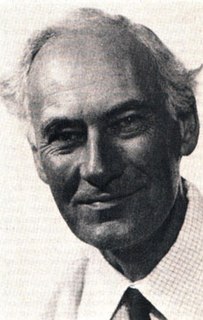A Quote by Cornel West
The authority of science promotes and encourages the activity of observing, comparing, measuring and ordering the physical characteristics of human bodies. Cartesian epistemology and classical ideals produced forms of rationality, scientificity and objectivity that, though efficacious in the quest for truth and knowledge, prohibited the intelligibility and legitimacy of black equality. In fact, to "think" such an idea was to be deemed irrational, barbaric or mad.
Quote Topics
Activity
Authority
Barbaric
Black
Bodies
Characteristics
Classical
Comparing
Deemed
Encourages
Epistemology
Equality
Fact
Forms
Human
Idea
Ideals
In Fact
Irrational
Knowledge
Legitimacy
Mad
Measuring
Objectivity
Observing
Ordering
Physical
Produced
Prohibited
Quest
Rationality
Science
Think
Though
Truth
Truth And Knowledge
Related Quotes
Epistemology now flourishes with various complementary approaches. This includes formal epistemology, experimental philosophy, cognitive science and psychology, including relevant brain science, and other philosophical subfields, such as metaphysics, action theory, language, and mind. It is not as though all questions of armchair, traditional epistemology are already settled conclusively, with unanimity or even consensus. We still need to reason our way together to a better view of those issues.
It should be totally fine to question the objectivity of scientists and the power structures in scientific institutions. The physical laws of the universe are objective, but human beings in any context are not. That includes with regard to science. To some extent, the supposed objectivity of science has given a lot of extra cover to very subjective and eccentric approaches to exploring aspects of ourselves and the universe around us.
As the biggest library if it is in disorder is not as useful as a small but well-arranged one, so you may accumulate a vast amount of knowledge but it will be of far less value to you than a much smaller amount if you have not thought it over for yourself; because only through ordering what you know by comparing every truth with every other truth can you take complete possession of your knowledge and get it into your power. You can think about only what you know, so you ought to learn something; on the other hand, you can know only what you have thought about.
One and all
We lend an ear-nay, Science takes thereto-
Encourages the meanest who has racked
Nature until he gains from her some fact,
To state what truth is from his point of view,
Mere pin-point though it be: since many such
Conduce to make a whole, she bids our friend
Come forward unabashed and haply lend
His little life-experience to our much
Of modern knowledge.
Although the formulations of science now offer the most advanced knowledge of nature, men continue to use obsolete forms of thought long discarded by scientific theory. In so far as these obsolete forms are superfluous for science, the fact that they persist violated the principle of the economy of thought, that characteristic trait of the bourgeois temper.
The significance of a fact is relative to [the general body of scientific] knowledge. To say that a fact is significant in science, is to say that it helps to establish or refute some general law; for science, though it starts from observation of the particular, is not concerned essentially with the particular, but with the general. A fact, in science, is not a mere fact, but an instance. In this the scientist differs from the artist, who, if he deigns to notice facts at all, is likely to notice them in all their particularity.
The modern susceptibility to conformity and obedience to authority indicates that the truth endorsed by authority is likely to be accepted as such by a majority of people, who are innately obedient to authority. This obedience-truth will then become a consensus-truth accepted by many individuals unable to stand alone against the majority. In this way, the truth promulgated by the propaganda system - however irrational - stands a good chance of becoming the consensus, and may come to seem self-evident common sense.
It is clear, then, that the idea of a fixed method, or of a fixed theory of rationality, rests on too naive a view of man and his social surroundings. To those who look at the rich material provided by history, and who are not intent on impoverishing it in order to please their lower instincts, their craving for intellectual security in the form of clarity, precision, "objectivity," "truth," it will become clear that there is only one principle that can be defended under all circumstances and in all stages of human development. It is the principle: anything goes.
An important tradition within westren philosophy believes in the primacy of natural science as a guide to truth. This is sometimes met with the charge that such an allegiance amounts to scientism - the view that the only things that really exist are those recognized by fundamental physical theory, and that the only forms of genuine knowledge are scientific ones.
One influential philosophical position about the use of probability in science holds that probabilities are objective only if they are based on micro-physics; all other probabilities should be interpreted subjectively, as merely revealing our ignorance about physical details. I have argued against this position, contending that the objectivity of micro-physical probabilities entails the objectivity of macro-probabilities.





































